Introduction
For the mind which yearns to know how difficult Everest Base Camp trek is, the answer is that Everest Base Camp is a tough adventure that will test both your mind and body. Yes, it’s true!
The steep terrain and high altitudes can be challenging. It’s a trek that really pushes adventurers to their limits.
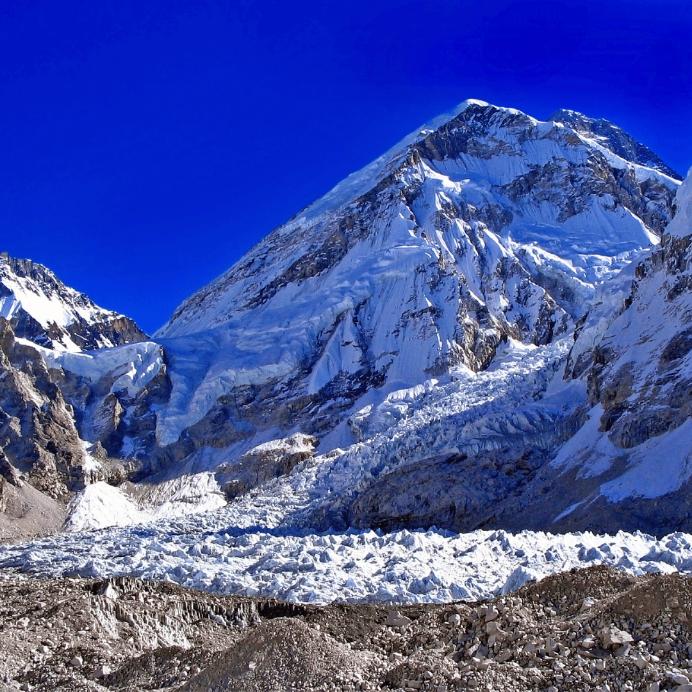
Despite it, people from every corner of the world come for it and enjoy the incredible views and experience that make it all worth it. You have to be prepared for the tough terrain and conditions, and with determination and perseverance, you can conquer this amazing adventure. And so have many till date.
If ever asked any of these travelers what’s the best thing they did in life- the answers will also have Everest Trek on the list.
So, let’s take a closer look at the mental and physical challenges you may face on the path to this amazing Everest Base Camp.
Table of Contents
How difficult Everest Base Camp Trek is: Physical Challenges
Altitude and Acclimatization
Altitude sickness can be a serious concern during treks like the Everest Base Camp journey. Altitude sickness symptoms include headaches, nausea, fatigue, dizziness, loss of appetite, and difficulty sleeping. In more severe cases, altitude sickness can lead to vomiting, shortness of breath, confusion, and swelling of the hands, feet, and face. Hence, planning is very important for safely adjusting to high altitudes.
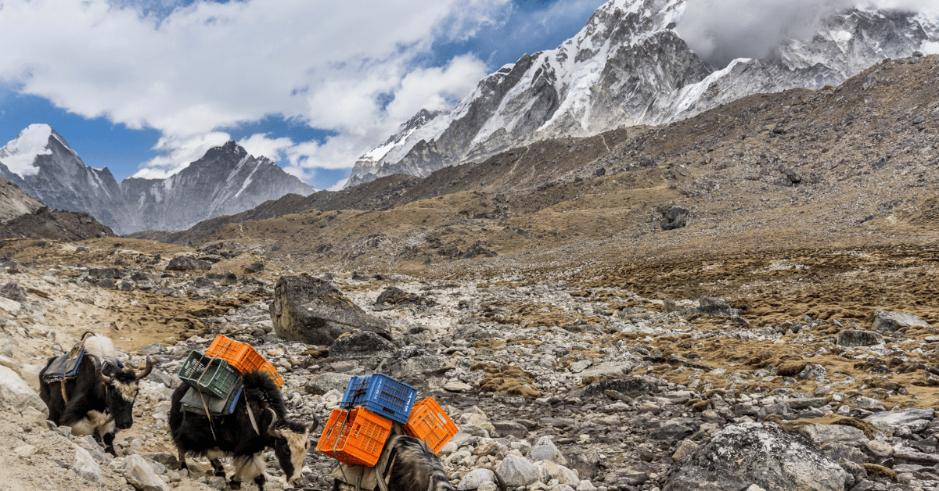
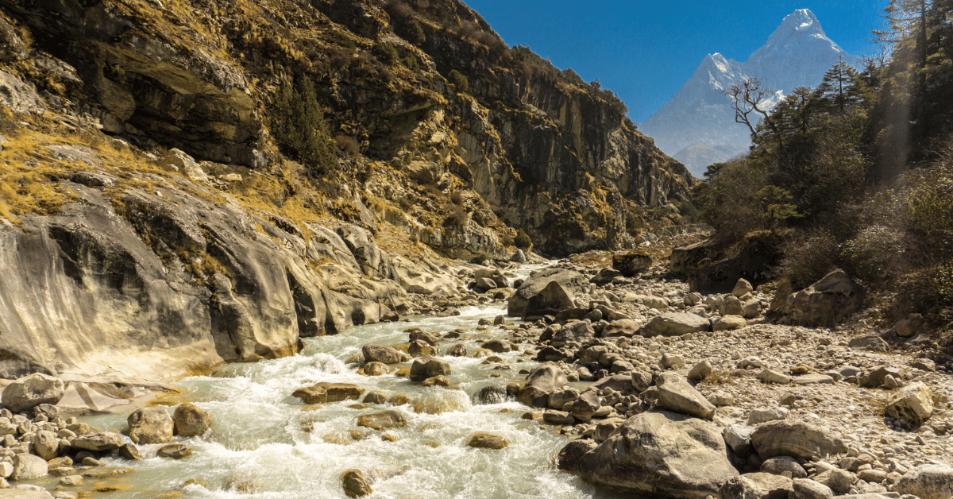
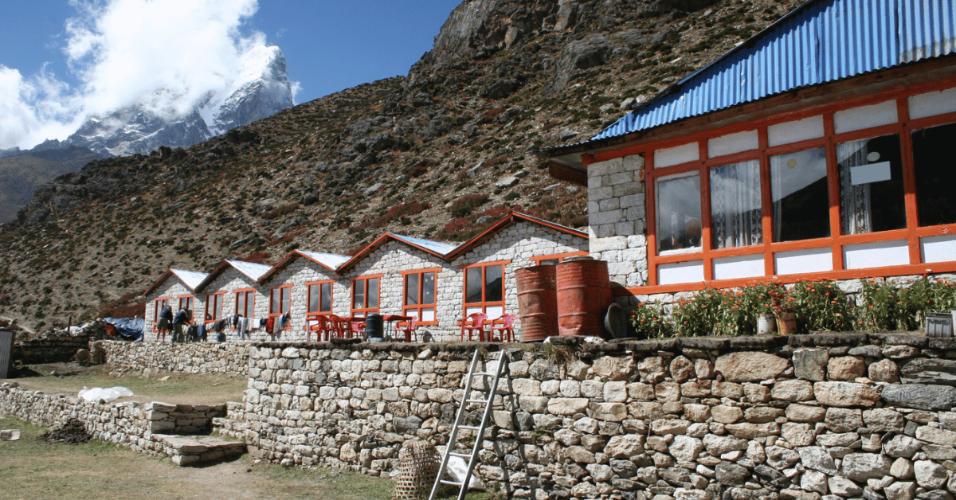
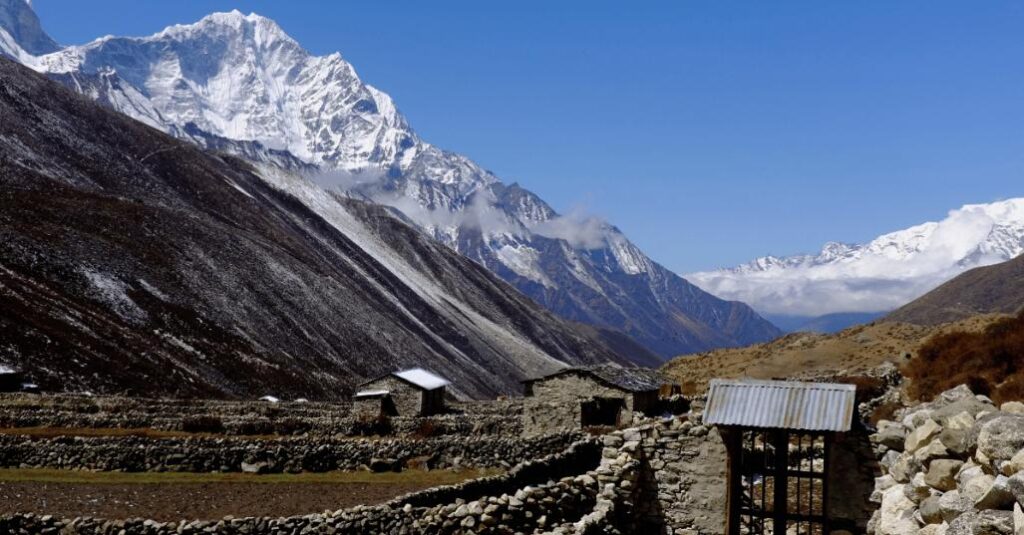
To acclimatize well, spending enough time in Lukla and Dingboche is important. Our guides help monitor AMS symptoms. Training, like gym workouts and hiking, can actually prepare you for this journey.
Length and Duration of Trek
When it comes to the question, how difficult Everest Base Camp trek is? The answer also lies in the duration of the trek too. The Everest Base Camp trek usually takes about 12 to 14 days, covering a total distance of around 130 kilometers back and forth. This timeframe helps trekkers get used to the high altitudes slowly, which lowers the chances of altitude sickness. However, the actual time needed for the trek can vary based on factors like altitude, weather, and how fit the trekkers are.
Getting ready for this adventure involves physical training like hiking and gym workouts to boost endurance and strength. It’s also important to plan everything carefully, making sure you have experienced guides and support staff like porters for safety and help with logistics.
In a nutshell, the length and challenges of the Everest Base Camp trek mean thorough planning and preparation are vital for a safe and rewarding journey through the stunning Himalayan scenery.
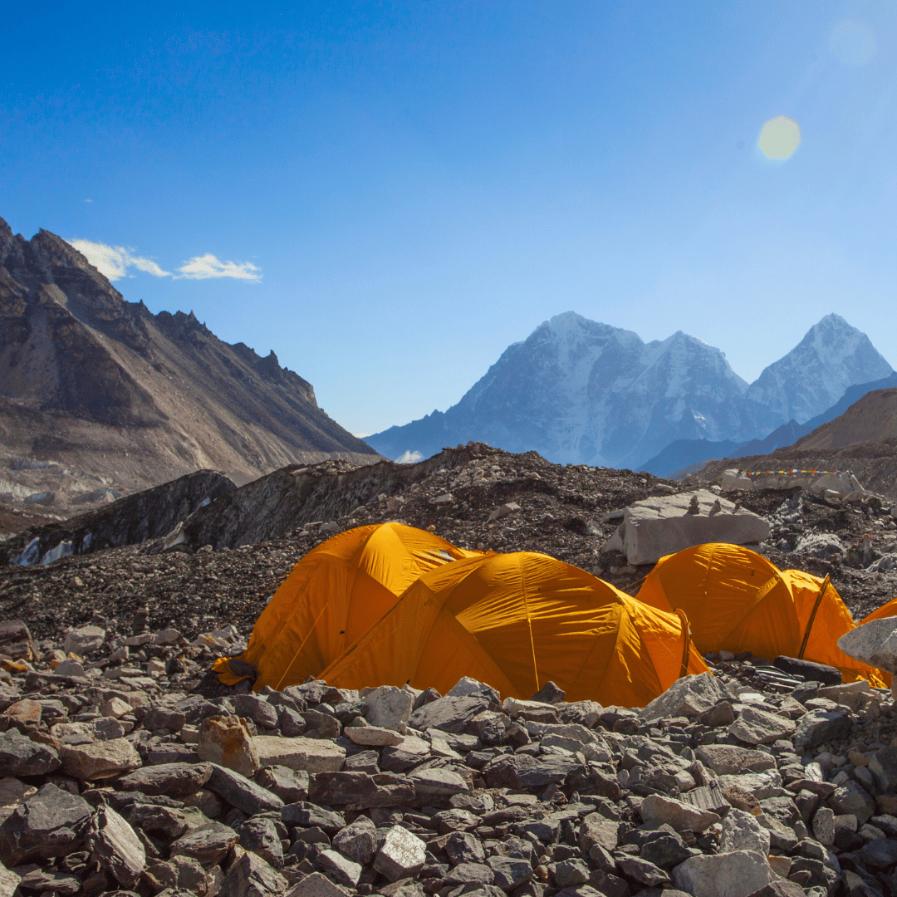
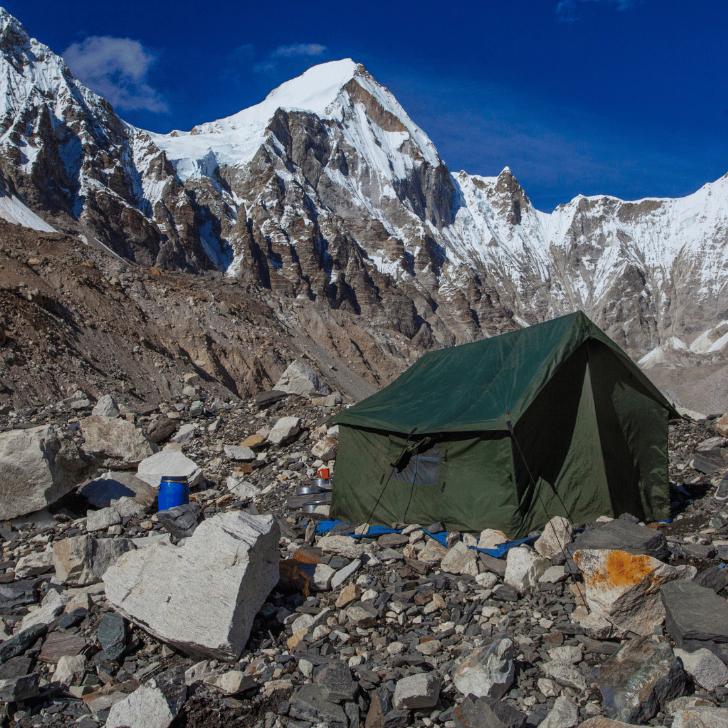
Training and Preparation
The question, how difficult Everest base camp trek is also is directly proportional to how mentally and physically a person it. Getting ready for the Everest Base Camp trek means getting both your body and mind in shape. It is important to focus on physical training to build up your endurance and strength. Regular gym sessions with cardio workouts like running or cycling help boost your overall fitness and stamina. Working on your leg muscles is especially important for handling the tough terrain at high altitudes.
Mental preparation is just as key, as altitude-related issues like headaches and sickness can crop up. To get mentally ready, it is helpful to know the route, schedule, and potential challenges in advance.
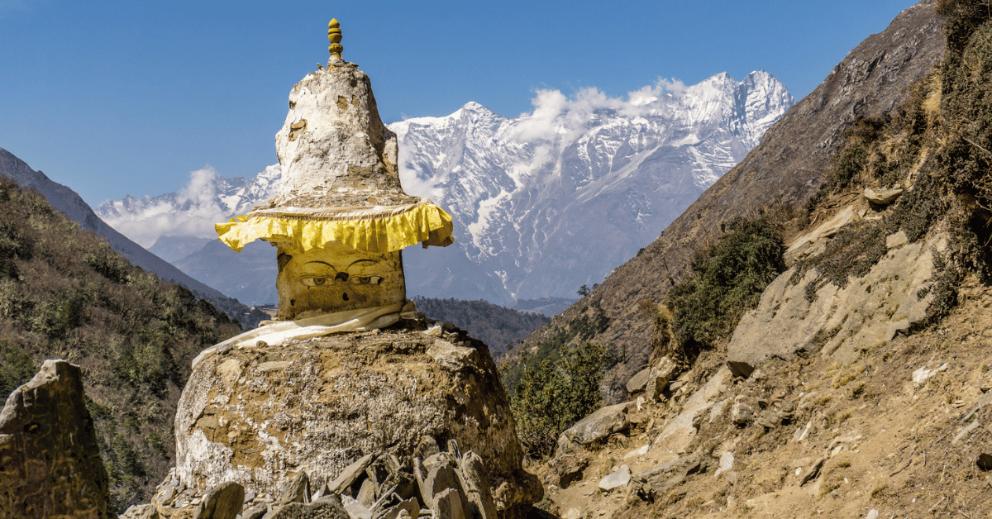
Taking breaks to acclimatize at spots like Dingboche helps your body adjust to the high altitudes, reducing the risk of altitude sickness. Making sure you have the right gear, medications, and a well-thought-out plan for your trek greatly increases your chances of having a successful and fulfilling adventure in the stunning Himalayas in Nepal.
Mental Challenges of Everest Base Camp Trek
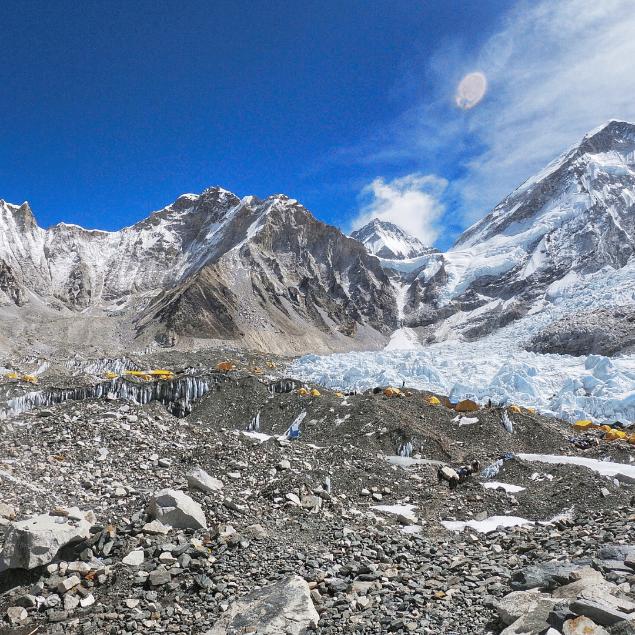
Psychological Preparedness
Mental readiness is an important factor for the Everest Base Camp trek when it comes to the question, how difficult Everest Base Camp trek is. Adventurers face tough challenges like high altitudes and rough terrain. Being mentally prepared to tackle these obstacles before and along the trek is key for a smooth journey. Strategies like acclimatization, regular gym workouts, and staying determined help build resilience and keep a positive attitude throughout the trek in the Everest region in Nepal.
Although altitude sickness, headaches, and the remote areas can be tough, having a well-planned schedule, experienced guides, and the right equipment ensure safety and comfort along the route. Choosing to trek in the spring or autumn seasons with a trusted tour group like Himalayan Trekking and Tours with 20 years of experience in the service can make the experience even better. Plus, amenities like toilets, tea houses, and medications are on hand to ease any discomfort during the trek.
In the end, being mentally prepared for the physical challenges, tough paths, and high altitudes is very important for successfully reaching the Everest Base Camp summit.
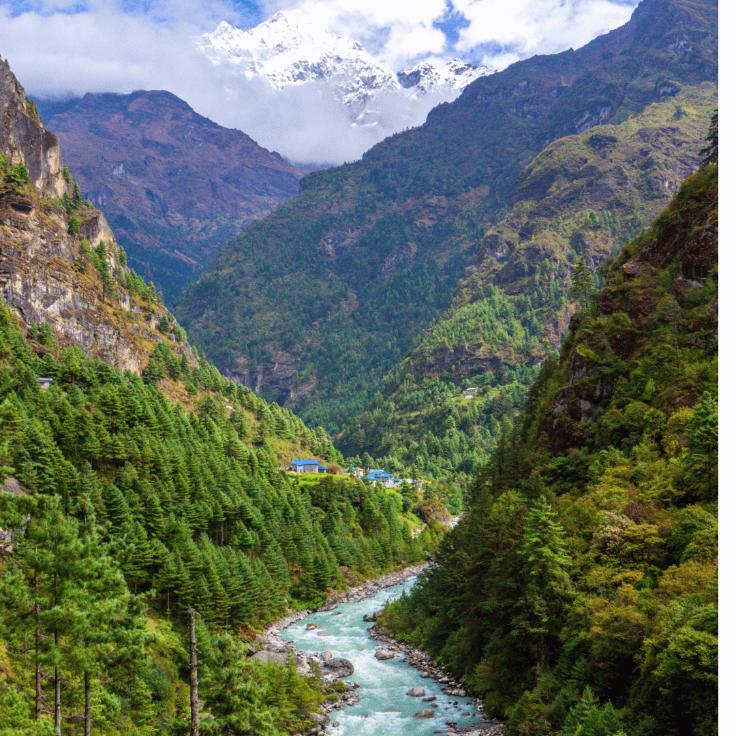
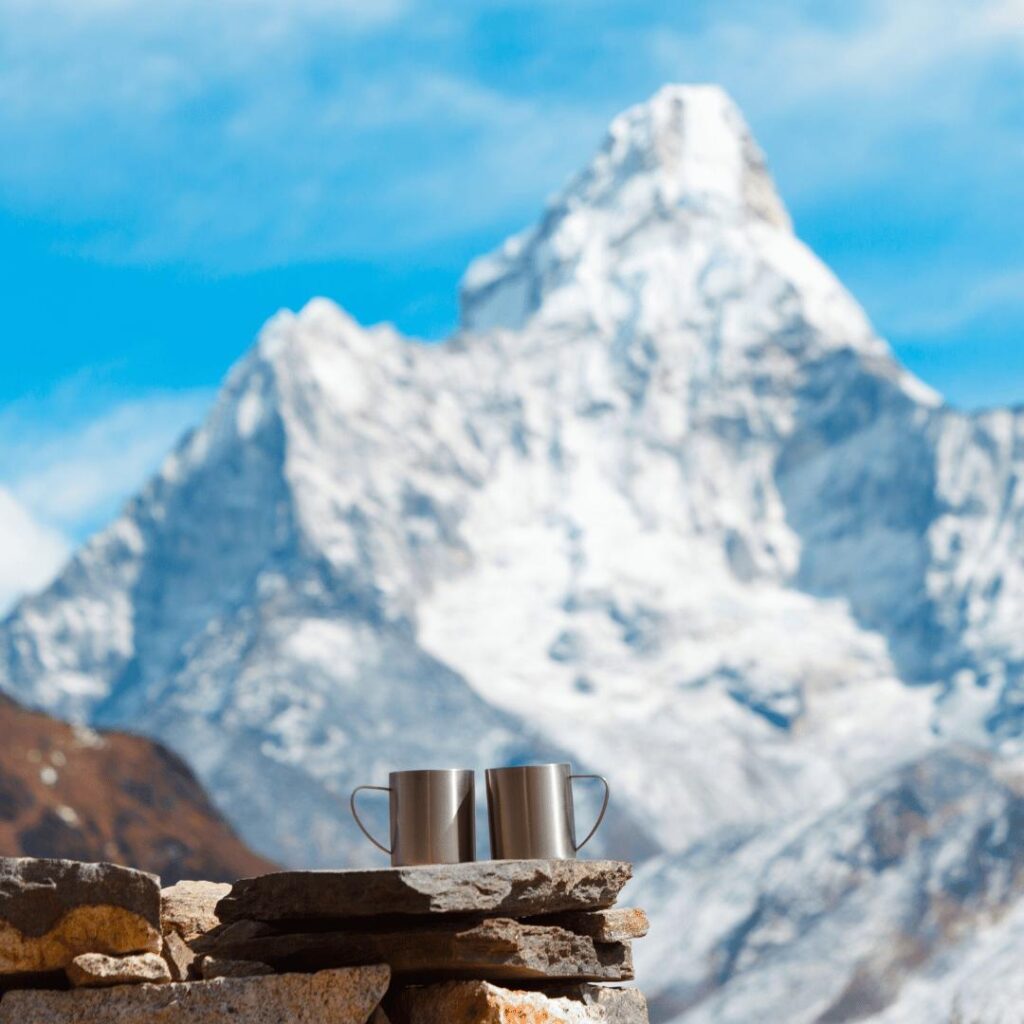
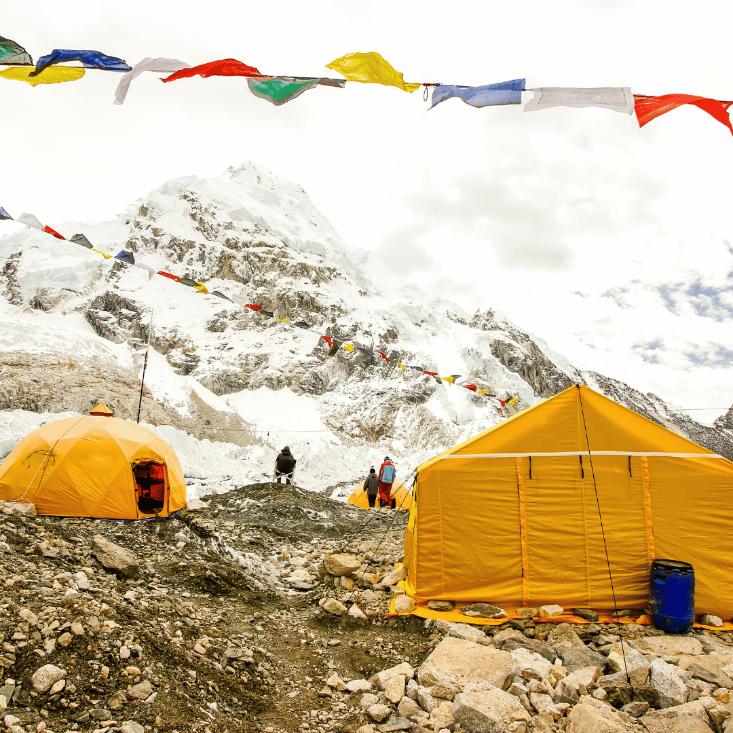
Effort and Persistence Required
Another factor determining answer to the popular question, how difficult Everest base camp trek is the effort and persistence from the trekkers’ side. Taking on the tough Everest Base Camp trek requires a lot of effort and a strong will to keep going. These qualities come from getting ready and training well before starting the journey.
It’s important to build up both your physical strength and mental toughness to handle the rough terrain and high altitudes you will face along the way. This is another factor playing a role for the question, “How difficult is Everest Base Camp Trek”. Dealing with altitude sickness is a big challenge, so taking time to acclimatize and drinking enough water during the trek is crucial.
In remote spots like Dingboche, having a strong mind is especially important. Trusting experienced guides and skilled porters adds safety and valuable support to your trek. Going with a trusted tour group like Discovery World Trekking ensures a well-planned schedule that considers different seasons, high altitudes, and tough paths. Being flexible and staying determined are key for a rewarding and successful trekking adventure in the breathtaking Himalayas.
Logistical Challenges of Everest Base Camp Trek
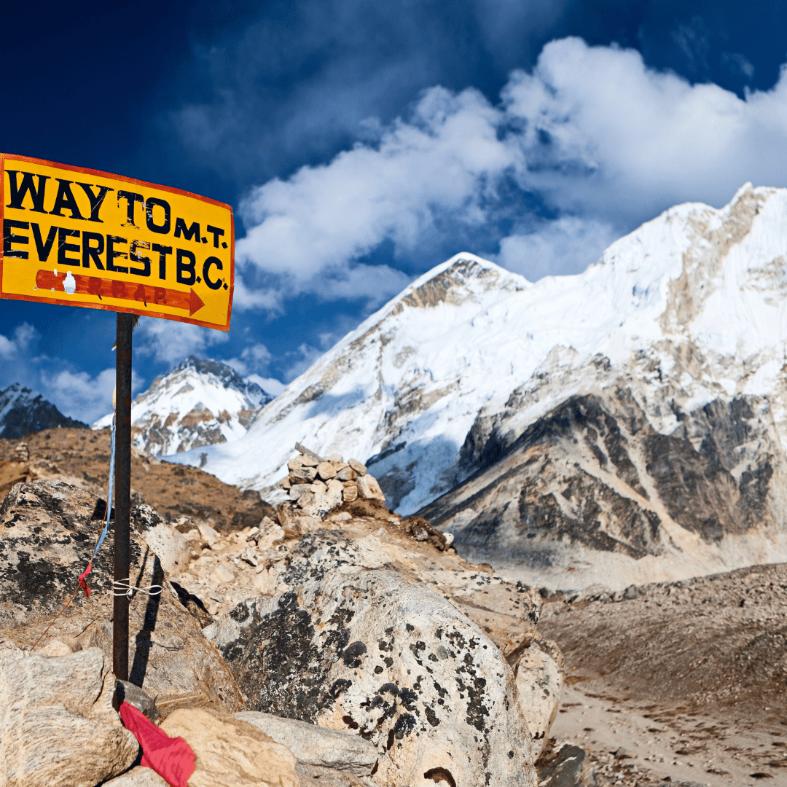
Choosing the Right Trek Operator
A trek operator’s qualifications and experience are important for challenging treks like Everest Base Camp. They need knowledge of high altitudes, trek routes, altitude sickness, and emergency procedures. When you have a good, reliable and experienced trek operators, the question to how difficult Everest Base Camp trek is, the answer would greatly impact. Having them by your side during this remote trek can have a great positive influence.
Reputable operators, such as us- Himalayan Trekking; as we have trained guides and that we ensure proper acclimatization schedules for safety. We have been in this service for more than 20 years and have been serving travelers with the same enthusiasm as its day 1. But our main concern is “Safety” of our travelers before anything else.
We at Himalayan Trekking and Tours offer necessary gear, and address altitude-related issues. When deciding between porters or guides, consider how difficult Everest Base Camp trek is, its duration, route, and personal fitness level.
Guides provide expertise and support, while porters help with heavy gear. A well-planned itinerary with rest days for acclimatization is very necessary for remote regions like Dingboche.
Choosing the right trek operator ensures a fulfilling and safe trekking experience in Everest’s high elevations.
Arranging Flights and Permits
Arranging flights and permits for the Everest Base Camp trek involves booking a flight from Kathmandu to Lukla, the nearest airport to the trekking trail. Flight schedules can be affected by weather conditions, so flexibility in the itinerary is key.
Permits required for the trek include the Sagarmatha National Park Entry Permit and the Khumbu Pasang Lhamu Rural Municipality Entrance Permit. These should be obtained through a licensed trekking agency or guide. We at Himalayan Trekking and Tours also arrange permits for our travelers for their ease.
Specific requirements include a valid passport and passport-sized photos for the permits.
Also, when arranging flights, trekkers must consider weight restrictions for luggage and be prepared for the challenging landing strip at Lukla.
Safety measures, such as hiring experienced guides and porters, should be part of the planning process to ensure a successful summit.
Hiring Porters or Guides
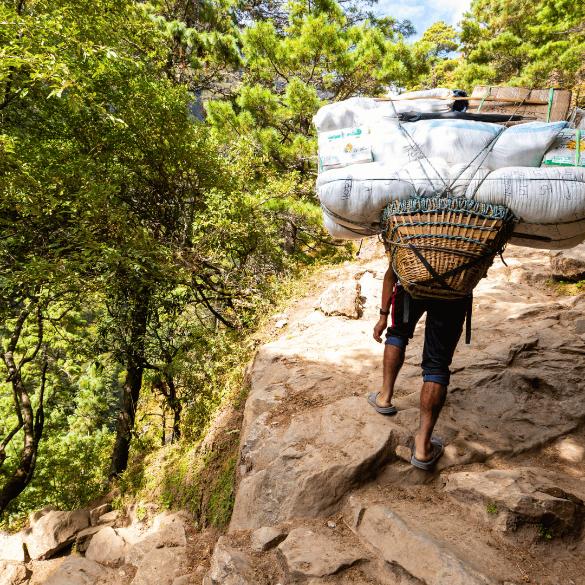
Hiring porters or guides for the Everest Base Camp trek is yet another critical decision, one that hinges on their prior experience leading treks in the region. The success and safety of the journey depend greatly on this. Thus, the question of how difficult Everest Base Camp trek is, also depends on whether one has opted for porters or not.
It’s important that guides possess proper training and certifications in high altitude trekking to effectively assist trekkers in acclimatization and navigation, minimizing the risk of altitude sickness and ensuring a smooth journey through challenging terrain.
Furthermore, Nepal has announced a ban on solo trekking starting April 1, 2023. Thus, it is mandatory to have guide when trekking in Nepal. Their expertise becomes particularly vital in emergencies or medical situations, where their ability to provide immediate assistance and manage altitude sickness symptoms can make all the difference.
In remote areas where safety is utmost important, having an experienced guide is not just beneficial but necessary. We at Himalayan Trekking ensure that our guides are well-versed in the route, acclimatization techniques, and safety protocols. With well-organized itineraries tailored to optimal trekking seasons such as spring and autumn, our guides play a crucial role in supervising the trekking schedule, overseeing the acclimatization process, and keeping trekkers motivated and healthy on their journey to the Everest Base Camp summit.
As for the question : How difficult everest base camp trek is? The answer to that is that it’s considered challenging due to its high altitude, rugged terrain, and unpredictable weather conditions, requiring careful preparation and experienced guidance to navigate safely.
Tips for Overcoming the Trek Difficulty
Take it Slow and Steady
Taking a slow and steady approach during the Everest Base Camp trek offers significant benefits to trekkers. By pacing oneself, the body is given the opportunity to acclimatize gradually to the high elevations, thereby reducing the risk of altitude sickness. Symptoms such as headaches and dizziness can be minimized through this approach. Additionally, adopting a slower pace allows hikers to fully appreciate the breathtaking mountain views and immerse themselves in the beauty of remote regions along the way.
To execute this effectively, it’s important for hikers to take regular rest breaks, maintain a steady walking pace, and prioritize hydration and nutrition. Engaging in pre-trek training activities such as gym workouts or local hikes can also help build stamina and endurance. Following a well-planned itinerary that includes acclimatization days in strategic locations like Dingboche further increases the likelihood of a successful trek.
While taking it slow and steady may pose its challenges, it undeniably enriches the overall trekking experience, allowing for a deeper connection with the majestic landscapes of the Everest region.
Conclusion
In conclusion, the question on how difficult Everest base camp trek is- the answer presents formidable challenges for hikers, encompassing high altitudes, harsh weather conditions, and rugged terrain. Overcoming these obstacles requires not only physical fitness but also mental fortitude to combat fatigue and altitude sickness along the way.
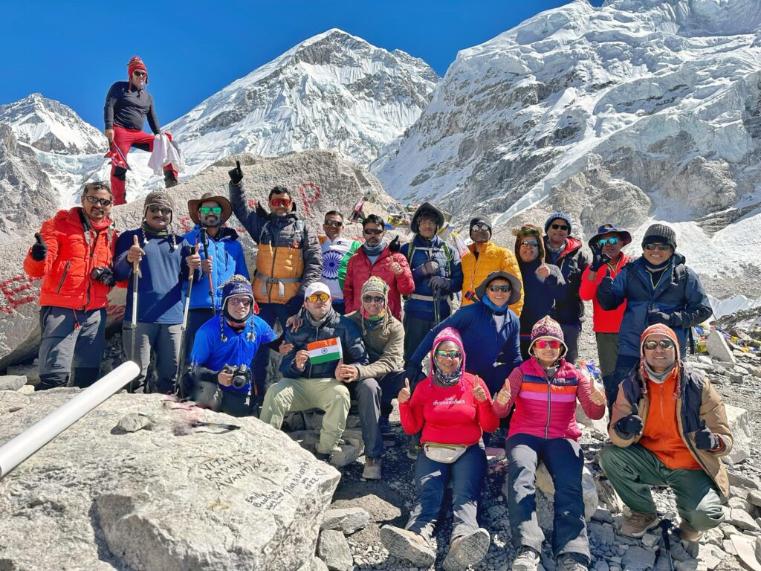
It is essential for trekkers to undertake thorough preparation and acclimatization measures to ensure a successful journey. Despite its difficulties, the trek offers unparalleled rewards, from inspiring vistas to personal growth and achievement, making it a truly unforgettable adventure for those who dare to opt it.
Send an Enquiry
Error: Contact form not found.
© 2025 - Himalayan Trekking and Tours (P) Ltd. All Rights Reserved.

